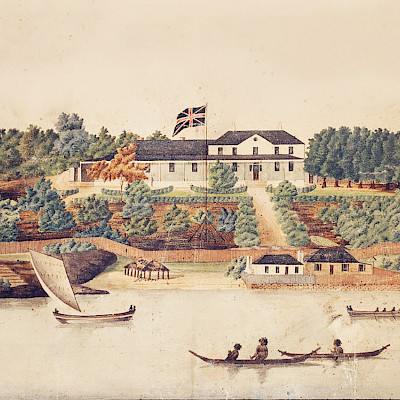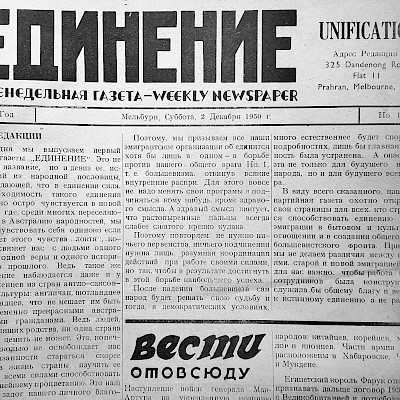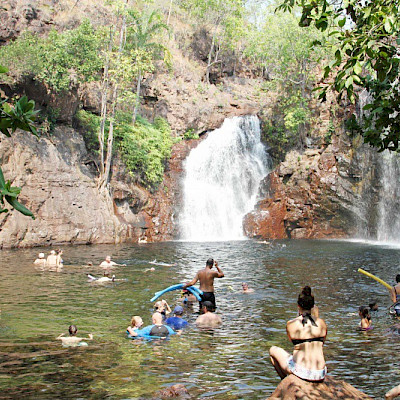
Although the expectations, hopes and aspirations of our communities may be changing, I suspect the majority of us would still like to see government interference in our private lives and affairs kept in check and our basic rights protected.
With the Israel Folau saga centre stage in NSW, the time has come for us to tackle the difficult question of religious rights in our home state. So why aren’t we?
Irrespective of what your view is on the dispute itself, there is growing discontent about people's basic rights and whether our laws adequately protect them. We might not all see the virtues of Folau’s particular ilk of Christianity, but does that mean he should not have the right to preach his beliefs?
Australia is a signatory to international agreements that recognise the right to ‘freedom of thought, conscience and religion’ and the right to ‘manifest religion or belief in worship, observance, practice or teaching’ both in public and in private.
Having commissioned the ‘Religious Freedom Review’ the federal government has flagged the introduction of a bill by mid-August. It has also asked for an inquiry into the ‘Framework of religious exemptions in anti-discrimination legislation’ by the Australian Law Reform Commission, due in April 2020.
I praise both Morrison and Albanese for agreeing to a bipartisan approach to introducing a religious freedom bill. Those in the federal sphere have recognised the need to work constructively for action on this issue, in the age of political correctness. But federal legislation is not intended to and will not supplant state laws and a void will remain in NSW unless we act at a state level. This is an area of legislative power shared between the commonwealth and the states.
Australia’s Constitution guarantees this right, guarding against federal parliament ‘establishing any religion,’ ‘imposing any religious observance’ or ‘prohibiting the free exercise of any religion.’ However, the NSW parliament is not bound by this restriction.
In NSW religious protection is limited to exemptions in the Anti-Discrimination Act 1977 that do not provide direct protection for religious belief, practice or expression. All other states and territories have anti-discrimination or equal opportunity legislation ensuring this important personal right.
If there’s one state that’s noticeably absent from the debate about religious protection, it’s NSW. Along with South Australia, we are the only states that do not directly prohibit discrimination on the basis of religion.
Data from the 2016 census reveals that NSW has the highest proportion of people of any state or territory who identify themselves as having a religion, at 65.5%, compared to 60.5% nationally.
In NSW, neither major party has offered any assurances to the millions of faithful. As the largest multifaith state, we cannot afford to wait for a Court to decide the extent of our rights or hope that the Feds will introduce adequate reforms. To do this would be irresponsible. Instead we must take charge and drive change.
Religious rights is a regular topic raised with me, particularly in Bankstown, where almost 80% identify as religious. Most of these people are not only devoutly religious, but for the most part loyal Labor voters. They don’t demand that
Labor support them on all socially conservative policies but they do demand that our party doesn’t turn its nose up or sneer at their sincerely held beliefs.
For many, their religious convictions are part of long-standing family customs and traditions stemming from their culture, and form part of who they are. Religion is inseparable from multiculturalism. We must do more for the diverse communities of our state than just relying on token appearances by MPs at functions.
So what is important to these communities? The protection of people from discrimination in all of its varied forms, but also the protection of the right to religious freedom, and the freedom to allow churches, mosques, temples, religious schools and other institutions to hire those they see fit to educate and work with their young people and members.
Both major parties profess to promote this diversity but despite the intense public debate only Mark Latham has been prepared to introduce a Private Members’ Bill. We can’t let One Nation steal the issue from under the noses of the major political parties. The NSW Government along with the Opposition cannot vacate this space or be prepared to sit idle.
In the next week, along with colleagues from across the political divide, I will be launching Parliamentary Friends of Religious Freedom. Together we will seek a unified approach to religious freedom and facilitate initiatives and events to promote and support religious freedom in NSW.
It’s time for NSW to take the driver’s seat on this issue and introduce reforms to safeguard the freedoms that are important to so many of us.
Tania Mihailuk MP
Member for Bankstown
















